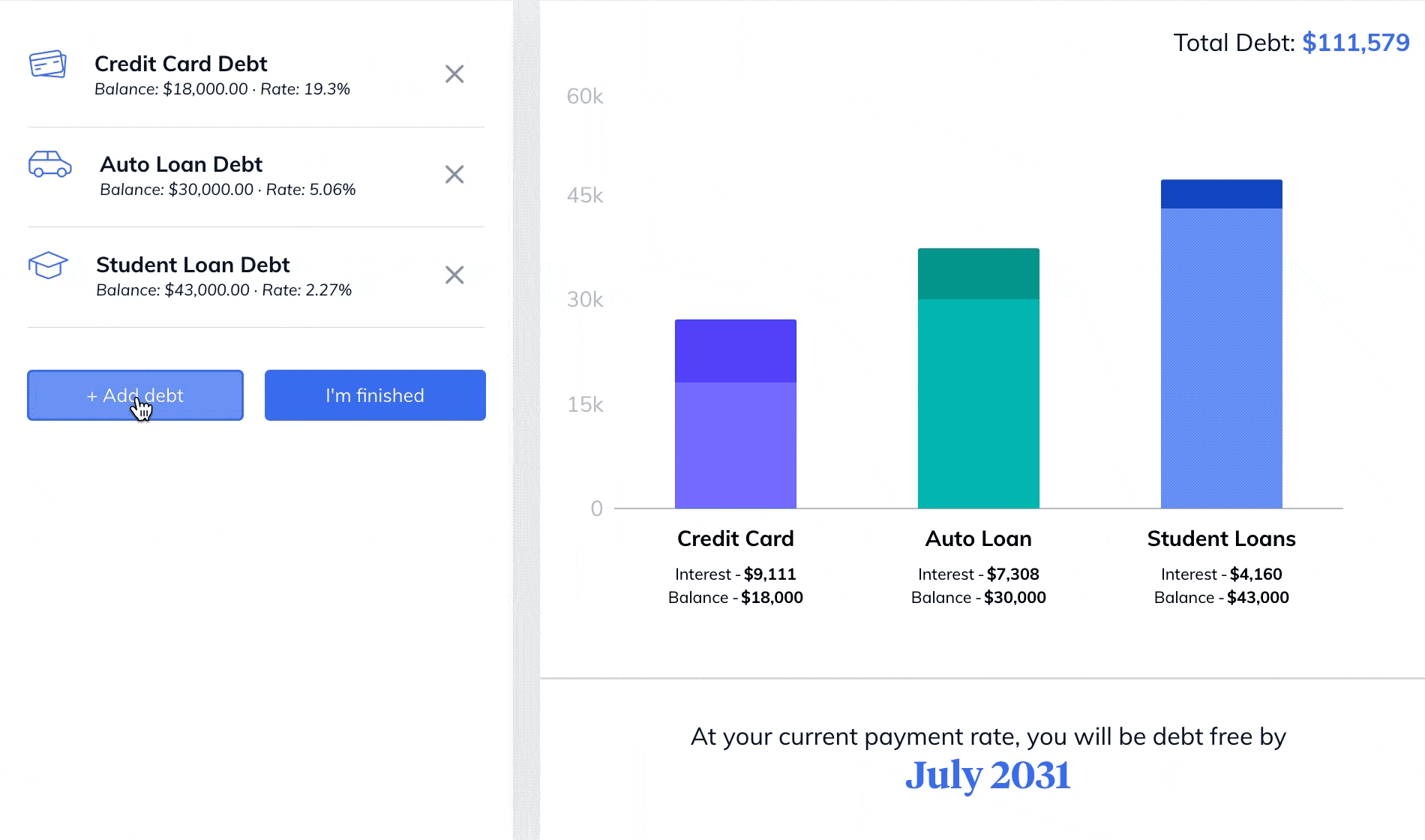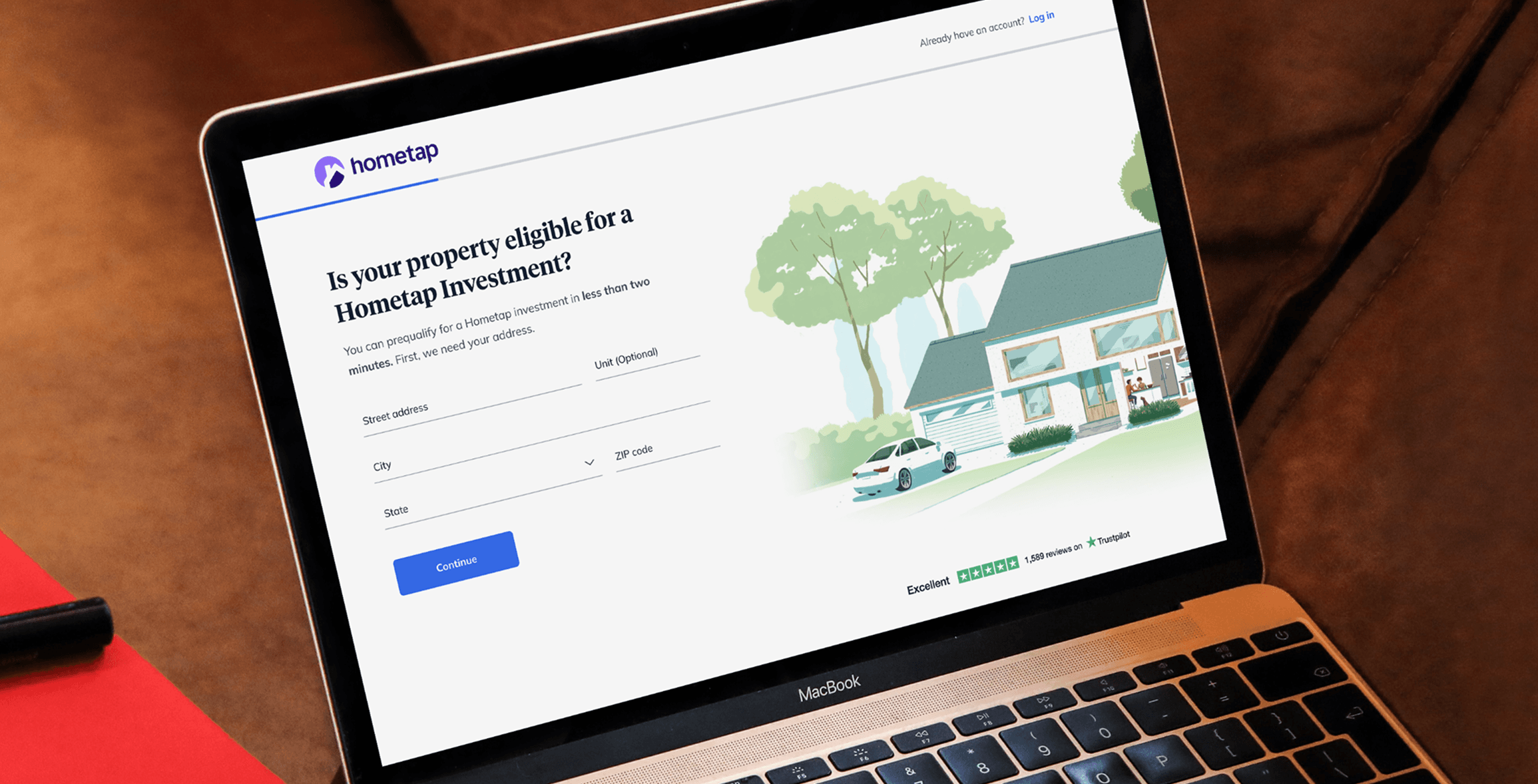What You Should Know About Using Home Equity to Pay Off Debt

For a long time, it seemed that many homeowners believed using home equity to pay off debt — or put it toward other life expenses — wasn’t a good idea.
But lately it feels like that narrative is changing. Maybe it’s due to the fact that home prices have climbed 29% since 2020, while household debt is up 11% from the same time period. Or that homeowners today have a wealth of financial options to choose from, empowering them to access their equity on their terms.
Could your home equity help you eliminate debt? We’ll take a look at some of the ways you can use home equity to consolidate debt, pros and cons to tapping your equity, and what other solutions you may have at your disposal.
Common Solutions for Paying Off Debt with Home Equity
Simply put, your home equity is the difference between your home’s value and your mortgage balance. Factors both within your control, such as paying down your balance, and outside of it, like market trends, influence the amount of equity you have, and there are multiple products that allow you to use it as collateral. Below, we’ll explore the following popular ways to access your equity to achieve your financial goals:
- Home equity loans
- Home equity lines of credit (HELOC)
- Home equity investment (HEI)
- Cash-out refinances
- Home sale
- Alternatives that don’t use equity
Home Equity Loan
Using a home equity loan to pay off debt is a popular option, since it gives you access to your equity in the form of a lump sum of cash to use for anything you’d like. Since its interest rate is fixed, meaning it will stay consistent, the monthly payment is predictable, but the application criteria can be restrictive and the approval process can be lengthy. You may hear about home equity loans for debt consolidation because the interest on a home equity loan is likely to be significantly lower than that of credit cards.
Home Equity Line of Credit (HELOC)
With a home equity line of credit, you have the flexibility to pull out your equity in cash as needed up to a maximum approved amount, not unlike with a credit card. However, if you’re considering a HELOC to pay off debt, keep in mind that because interest rates are variable, your monthly payments will fluctuate from month to month, and your lender can freeze your HELOC at any time if your credit score drops significantly.
Home Equity Investment (HEI)
A home equity investment provides you with cash in exchange for a share of your home’s future value. Specifics and terms vary by provider, but a Hometap Investment doesn’t have any monthly payments and you have 10 years to settle the Investment through a buyout with savings, refinance, or sale of your home.
Since you’re receiving a lump sum without monthly payments, an HEI can give you the time and flexibility to get out from under debts.
Find out how one homeowner used a Hometap Investment to pay off debt and get closer to financial freedom.
Cash-out Refinance
With a cash-out refinance, you’re replacing your current mortgage with a new one that carries a larger balance, and you’ll pocket the difference in cash. However, since you’re taking out a new mortgage, you’ll also have to deal with the same costs you faced the first time around, like closing and origination fees. This is typically only favorable if you’re able to lock in a new rate low enough to cover the cost of these fees.
To summarize, here’s how all of these financial options compare:
Home Equity Investment | |
|---|---|
| No payments for up to 10 years | |
| No monthly payments | |
| No debt-to-income requirements | |
| No income requirements | |
| Fast funding | |
| Age eligibility 18+ | |
| Flexible qualification criteria |
Home Sale
And finally, there's an option that doesn't involve a financial product: selling. In some cases, especially if you were already looking to downsize or relocate, it can make sense to sell your home in order to access money to pay off debt.
Alternatives to Using Home Equity to Pay Off Debt
There are also financing solutions that don’t involve accessing your equity to pay for expenses. However, it’s important to keep in mind that any loans not using your home as collateral will likely come with a higher interest rate; this reflects the increased risk that the lender is taking on by offering funding. These are considered “unsecured” loans.
Personal Loan
With a personal loan, you’ll borrow money in the form of a lump sum of cash from a financial institution, like a bank or credit union, in order to consolidate or pay off your debt. This option comes with an interest rate that’s usually fixed, so you’ll have predictable monthly payments. However, like with home equity loans and HELOCs, the application and approval process can be restrictive and lengthy.
Debt Consolidation Loan
As the name suggests, this loan gives you money to pay off all your debts with one monthly payment over a term that typically ranges from one to seven years. This can be a good option for those who value the convenience of a singular, predictable monthly bill. However, there could be upfront fees, and your credit score could drop if you miss payments. This is similar to a home equity loan for debt consolidation, but can have less restrictive qualification and approval criteria.
Balance Transfer Credit Card
A balance transfer credit card moves all of your existing credit card balances onto one new card and allows you to pay them off with 0% interest during a promotional period, which is usually 15 to 21 months. While this can save you money, you’ll usually need good to excellent credit in order to qualify for this option.
How to Pay Off Debt Using Your Home Equity
The first step toward paying off your debt using your home equity is knowing how much equity you have — and how much you can access. Hometap’s Home Equity Dashboard is an easy (and free) tool you can use to find out.
Struggling to figure out which debt to pay off first? There are a couple different ways to go about prioritizing them, including the popular “avalanche” method, in which you work to eliminate your debt with the highest interest and work down, and the “snowball” method, which has you working to take care of your debt with the smallest balance and working upwards.
To begin prioritizing debts to pay off, check out our free debt calculator. Here's a preview of how it works.

Frequently-asked Questions About Using Equity to Pay Off Debt
Is it smart to use equity to pay off debt?
As with most options, it can be smart to use your equity to pay off debt if it makes sense for your own goals and financing situation. It allows you to pull from money you already have — but that may be tied up in your home — to handle life expenses.
However, with nearly all home equity financing options, your home could be at risk if you find yourself unable to pay off the loan, line of credit, or investment, so you’ll want to make sure you’re prepared to repay the money once you’ve settled your debts. It’s also important to understand that using a loan means you’re creating one debt to eliminate another, and to take the time to determine if this makes financial sense for you.
What should you not use a home equity loan for?
While there typically aren’t any restrictions on how you use the funds from your home equity loan, it might be a better fit for uses where you need a larger, one-time lump sum of cash, like a renovation project or emergency expense. In situations where it makes more sense to pull money as you need it, you might want to consider a HELOC.
It’s also in your best interest to avoid using a loan for things that don’t contribute to your wealth, such as a vacation, clothing, or other assets that won’t appreciate or add value.
Does a home equity loan hurt your credit?
Since a home equity loan is considered a new form of credit, it does show up on your credit report — and new credit impacts 10% of your FICO credit score, so it’s possible that taking out a home equity loan could decrease your credit score, at least temporarily. However, your score can rebound over time. In fact, paying off debts can have positive impacts on your credit score, since the factors that affect your score include payment history and debt-to-income ratio.
If you’re considering using your home equity to pay off debt, know that it can be a great and safe option, and can bring you closer to your goals — but as with any financial decision, it’s important to weigh the pros and cons before you move forward to make sure it’s the right choice for you.
Ready to find out how much of your home’s equity you could access with a Hometap Investment? It only takes a couple minutes.
You should know
We do our best to make sure that the information in this post is as accurate as possible as of the date it is published, but things change quickly sometimes. Hometap does not endorse or monitor any linked websites. Individual situations differ, so consult your own finance, tax or legal professional to determine what makes sense for you.



